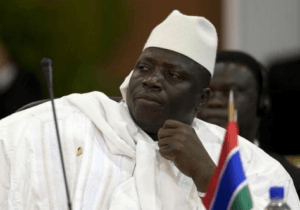The Gambia election stalemate: Jammeh turns to Supreme Court to buy time

President Yahya Jammeh of The Gambia is doing everything possible to buy time and to stall the inauguration of the winner of the country’s December 1, 2016 elections, Adama Barrow, by suggesting that it is only the Supreme Court of the country that can decide who is president.
However, the Supreme Court won’t be meeting till May, 2017.
Jammeh, who lost the election which he conceded, but later made a U-turn to reject the results and demand a re-run of has come under pressure both at home and from the international community to step down when his term ends on January 18, 2017. The winner of the election, Adama Barrow is expected to be inaugurated on January 19, 2017.
Jammeh had this week delayed a delegation of the Heads of State of the Economic Community of West African States (ECOWAS) scheduled to meet with him on Wednesday on the matter, asking that the delegation instead meets with him on Friday.
He has petitioned the Supreme Court over the results, but the Court has been unable to meet to hear the case as the judges are all from Nigeria and Sierra Leone and they are known to be on holidays. The next court calendar in The Gambia is scheduled for May 2017.
His reference to the Supreme Court is seen as an attempt to buy time.
In a letter by the Acting Chief Justice of Nigeria, Hon. Justice W. S. N. Onnoghen to The Gambia’s Chief Justice, Hon. Justice Emmanuel O. Fagbenle, which ghanabusinessnews.com has been able to verify as authentic, the Supreme Court of The Gambia is scheduled to sit in the months of May and November. This schedule makes it impossible for Jammeh’s petition challenging the election results to be heard by the Court within the stipulated 10 days period after the elections.
The letter adds, “In view of the above, I regret to inform you that the re-scheduled date for this sitting session of your Supreme Court is unfavourable to us as it will greatly affect our schedule and case management. I therefore, urge you to adhere to the earlier schedule of May and November each year to avoid inconvenience to both judiciaries.”
In a broadcast to the nation, Tuesday January 10, 2017, he accused the international community and the ECOWAS of interference.
Jammeh seemed unhappy with what he called, “unprecedented level of foreign interference in our election and internal affairs and a sustained smear campaign, propaganda and misinformation”.
By Emmanuel K. Dogbevi
